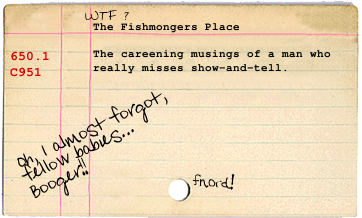Ok, so given that an electron and an anti-electron* will annihilate each other, resulting in a burst of energy, and that a proton and an anti-proton will annihilate each other, resulting in a (presumably bigger) burst of energy.... what happens if an anti-electron encounters a proton? There's something like an 1840x difference in masses, so they can't just annihilate each other, right? And if the anti-electron only combines with 1/1840th of a proton, what happens to the rest? We've got to be talking partially destroying a quark, right? Any partical physicists wanna help me understand what happens?
* OK, fine, positron. Damn geeks.


4 comments:
With a charge of +1, its very improbable that an antielectron (a.k.a. positron) would encounter a proton before it was attracted to an electron.
I found an article reference on-line to Physics Letters B, "Proton-positron oscillations", S. Rajpoot & J.G. Taylor, 2/1984. It discusses the conservation of baryon number minus lepton number. That implies the collision leads to the annihilation of a quark. That interaction likely leads to a domino reaction to resolve the free quarks into something else.
Thanks Anonymous! Yeah, I guess I should have posited a neutron. I'm not really used to considering anti-matter. Forgot to consider the flipped charge.
So are you saying the quark would be entirely annihilated, first through the matter/anti-matter interaction, and then through the instability of whatever remains?
Thanks Anonymous! Yeah, I guess I should have posited a neutron. I'm not really used to considering anti-matter. Forgot to consider the flipped charge.
So are you saying the quark would be entirely annihilated, first through the matter/anti-matter interaction, and then through the instability of whatever remains?
I believe that some of the three quarks in the proton would be eliminated by the positron. The remaining quarks would quickly interact with something else to form a more stable particle.
I'm not a particle physicist, so that's kind of a guess.
Post a Comment